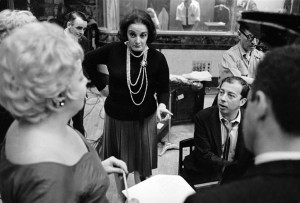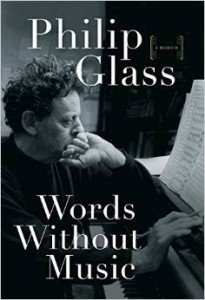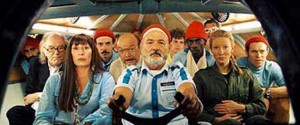Today’s Wall Street Journal “Sightings” column is about Cy Coleman, one of my favorite songwriters. Here’s an excerpt.
* * *
Long after their passing, many of the key figures of the bygone era now known as the Golden Age of American Popular Song are still widely known by name—many, but not all. When you think of “I Got Rhythm,” you think of George Gershwin, but when you think of “Witchcraft,” you think of Frank Sinatra, whose finger-snapping 1957 record of that hipper-than-thou tune is featured on the soundtrack of “Fifty Shades of Grey.” Yet Cy Coleman, who penned the music to “Witchcraft,” “Big Spender” and numerous other blue-chip standards, was one of the most consistently and deservedly successful songwriters of the postwar era. Between 1960 and his death in 2004, he wrote the scores for 11 musicals that made it to Broadway, where he worked with Lucille Ball, Sid Caesar, Betty Comden and Adolph Green, Bob Fosse, Neil Simon and Gwen Verdon. Most of these shows had long, lucrative runs, and one, “On the Twentieth Century,” has just hit big in its first Broadway revival.
By all rights, then, Coleman ought to be as well remembered as Gershwin or Richard Rodgers. So why is his name little known save to connoisseurs of Broadway musicals and popular song? How could so excellent an artist have fallen into the memory hole?…
Born in New York in 1929, Coleman was a musical prodigy who underwent rigorous classical training but shrugged it off to play piano in high-end hotel lounges and supper clubs. He was, in fact, the only golden-age songwriter to have started out as a full-time jazz instrumentalist, an experience that shaped his composing style. “Witchcraft” is one of many tunes by Coleman that are built out of the short, swinging rhythmic phrases that jazzmen call “riffs,” and he also employed the complex harmonies of modern jazz….
 Then as now, jazziness signified cultural sophistication, and most of Coleman’s hits featured the like-minded lyrics of Carolyn Leigh, who in “Witchcraft,” “The Best Is Yet to Come,” “I Walk a Little Faster” and “I’ve Got Your Number” wrote eloquently of the ins, outs, ups and downs of big-city romance: “Oh, yes, you’ll brag a lot,/Wave your own flag a lot,/But you’re unsure a lot,/You’re a lot like me.” Coleman’s heavily syncopated tunes fit her sexy sentiments like a bespoke sharkskin suit….
Then as now, jazziness signified cultural sophistication, and most of Coleman’s hits featured the like-minded lyrics of Carolyn Leigh, who in “Witchcraft,” “The Best Is Yet to Come,” “I Walk a Little Faster” and “I’ve Got Your Number” wrote eloquently of the ins, outs, ups and downs of big-city romance: “Oh, yes, you’ll brag a lot,/Wave your own flag a lot,/But you’re unsure a lot,/You’re a lot like me.” Coleman’s heavily syncopated tunes fit her sexy sentiments like a bespoke sharkskin suit….
Coleman’s musical sophistication made it possible for him to jump from Tin Pan Alley to Broadway, where he proved equally adept at writing theatrical songs that propel the plot of a musical instead of telling self-contained stories. He made the switch just in time, a few years before rock shoved aside golden-age pop to become the lingua franca of American popular music. Though Coleman did all he could to come to terms with the new music, he neither liked nor understood it….
Broadway, which also had no use for rock, kept Coleman afloat and made him rich—but at a high price. He increasingly turned away from jazz, opting instead to become a stylistic chameleon…
* * *
Read the whole thing here.
The first episode of Playboy’s Penthouse, a 1959 TV variety series hosted by Hugh Hefner. Cy Coleman, the first guest, sings and plays “Witchcraft,” accompanied by Charlie Shavers on trumpet:


 •
•  My monthly essay for Commentary, this one for the April issue, is now available on line. It’s occasioned by the publication of
My monthly essay for Commentary, this one for the April issue, is now available on line. It’s occasioned by the publication of 
 I scarcely ever see movies when they’re new—my day job keeps me too busy—and so I only just caught up last night with Wes Anderson’s Moonrise Kingdom, which I thought as poignant and exquisitely wrought as the music by Benjamin Britten that is used to such miraculously apposite effect on the soundtrack of the film.
I scarcely ever see movies when they’re new—my day job keeps me too busy—and so I only just caught up last night with Wes Anderson’s Moonrise Kingdom, which I thought as poignant and exquisitely wrought as the music by Benjamin Britten that is used to such miraculously apposite effect on the soundtrack of the film. It makes perfect sense that Anderson has chosen Bill Murray to play Zissou. Though his acting is narrowly limited in range, Murray is a kind of comic genius when it comes to embodying accidie on screen. Twice before, in Groundhog Day and Lost in Translation, he has played terminally disillusioned characters whose souls are deadened by sloth, and done it brilliantly. He does the same thing—no less brilliantly—in The Life Aquatic, playing a contemporary cynic whose feelings are so thickly encased in a shell of irony that it’s depressing just to look at him. Everyone else in The Life Aquatic is cunningly cast (especially the amazing Cate Blanchett, that best of all possible actress-chameleons), but it’s Murray’s performance that is the film’s moral center. Is he too deeply mired in sloth to be resurrected by the prospect of love? Though we laugh at his deliciously exaggerated ennui, we still want to know the answer—and hope against hope that it’s the right one.
It makes perfect sense that Anderson has chosen Bill Murray to play Zissou. Though his acting is narrowly limited in range, Murray is a kind of comic genius when it comes to embodying accidie on screen. Twice before, in Groundhog Day and Lost in Translation, he has played terminally disillusioned characters whose souls are deadened by sloth, and done it brilliantly. He does the same thing—no less brilliantly—in The Life Aquatic, playing a contemporary cynic whose feelings are so thickly encased in a shell of irony that it’s depressing just to look at him. Everyone else in The Life Aquatic is cunningly cast (especially the amazing Cate Blanchett, that best of all possible actress-chameleons), but it’s Murray’s performance that is the film’s moral center. Is he too deeply mired in sloth to be resurrected by the prospect of love? Though we laugh at his deliciously exaggerated ennui, we still want to know the answer—and hope against hope that it’s the right one.